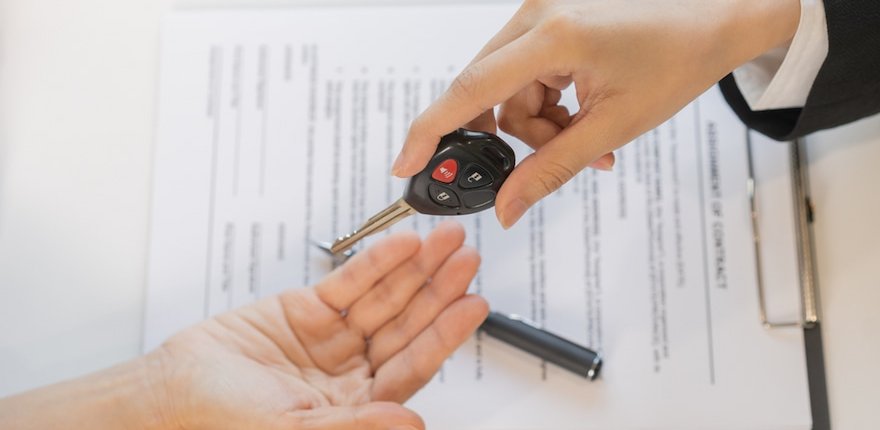If you are selling your car, a bill of sale records the transfer of ownership. A used car bill of sale shows the transaction terms and serves as written proof that you sold the car. It is wise to complete a bill of sale form even if it is not state law where you live if you plan to sell your car privately. Also, you will need a bill of sale since your local DMV will need to see proof of purchase.
Some states require a motor vehicle bill of sale form; others do not. Even if only for your personal records, anyone who buys or sells a vehicle needs a bill of sale. Private used car dealers use bills of sale.
A bill of sale certifies and records the purchase while serving as a receipt and invoice for the transaction. It is a hybrid of a legal document between the car buyer and the seller that records the transfer of ownership between the two parties.
Here are some tips on preparing a car bill for sale, whether you are the buyer or the seller.
Who Needs a Bill of Sale for Used Cars?
Some states do not require a bill of sale, while others require a notary to validate the document. In Louisiana, Nebraska, Maryland, New Hampshire, West Virginia, and Montana, a notary public must witness the signing of the bill of sale. While it is helpful for both parties, it is also beneficial to your local Department of Motor Vehicles (DMV) since they document all car sales with a paper trail.
The 16 states below require a bill of sale as part of their state laws:
Whether a bill of sale is required in your state or not, create one, so it can protect you as a seller or buyer. The bill of sale can serve as proof of the car's sale price for sales tax. It can serve as a liability protection document for the seller. Bills of sale are an excellent protective measure, regardless of the state requirements.
Writing a Bill of Sale for Used Cars
It may be good to provide a bill of sale, even if many states do not require it, to document the deal between seller and buyer and make sure all the terms and conditions are in writing. Bills of sale should include the following items:
Here are the elements a car bill of sale should include:
-
Sale date.
-
Information about the car, such as:
- Year, make, and model
- Current mileage
- License plate number
- Vehicle identification number (VIN)
-
How much the car will sell for. It is still necessary to create a bill of sale even if the car is a gift. If money exchanged hands, state the reduced price and that the car was a gift.
-
Warranty information. In most cases, private party sales are "as is," meaning no warranty is provided. If there is a separate agreement, include it in the bill of sale.
-
Buyer and seller's full names, addresses, and signatures. The buyer and seller should each get a copy of the document once you have completed it or filled in the blanks.
Get a Car Bill of Sale Here
How Do I Fill Out a Title When Selling a Car?
The car title, or certificate of title, serves as proof of ownership for a vehicle. The title procedure varies from state to state. Most states, however, allow the titled owner of the car to sign and date the title.
The other states may require additional information, including disclosing the odometer, selling price, or information regarding the lien release. Before any changes, make sure you have checked your title carefully to avoid ordering a replacement title because of a mistake.
Read more: Absolute and Conditional Bill of Sale
Seller and buyer signatures
You must sign titles to transfer vehicle ownership. Be sure to read your full title before determining where to sign. Locate the "Seller" section. Many titles include a place for you to print your name and address.
If another person's name appears on the title, that person must also sign. The other person must sign next to your name if no "Co-owner" spot exists. A notarized signature is required in some states.
Prices, odometers, and damage information
Different states require different forms, prices, damages, and odometer statements. In some states, titles require detailed information, while others do not because additional forms are required. To find out if your title needs replacing, contact the motor vehicle office of your state.
Lien Release Documentation
Most states do not permit title transfers when a lienholder's name appears on the title. Even after paying off your loan, you still need to get a lien release letter or a signature from the bank. In some states, the lien holder can sign on the title, whereby the lien is released.
Who Pays Sales Tax When Selling a Used Car Privately?
Not everyone knows that used cars are subject to sales tax, just like a new car. If your home state requires a sales tax on vehicle purchases, you will pay this tax whether a new or used car and whether you buy from a dealership or an individual.
Your tax bill will depend on several factors, including how much the car is worth, where it will be registered, and any other taxes your state imposes on car purchases. According to Ronald Montoya, senior consumer advice editor at Edmunds, most states charge their sales tax between 5% and 9%. Here are the states without a sales tax:
- Alaska
- Delaware
- Montana
- New Hampshire
- Oregon
Your county and city may levy their own sales taxes besides state sales taxes. Ensure you're paying all required taxes by contacting your state's Department of Motor Vehicles.
Helpful Resources:
Odometer Information | State PA


